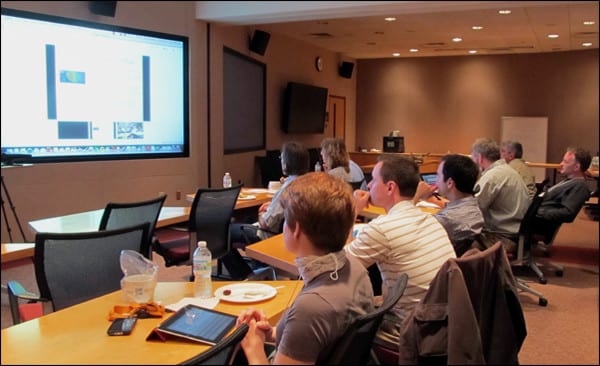
Over the past decade the recording industry has learned some hard lessons - first with Napster then with Apple iTunes. Fortunately live music ticket sales have made up for losses in CD sales. The burgeoning industry of massive and open online college courses (MOOCs) would be wise to study what the recording industry has been through. But what if MOOCs start selling tickets to course lectures as pay-per-view events?
Flashback to the year 1999. The world was only just hearing of a new way to listen to music that didn't involve buying CDs. "File sharing" may not have made much sense to music fans at the time, and the acronym MP3 meant even less, but that didn't stop Napster from becoming a recorded music distribution powerhouse almost overnight. The recording industry dismissed Napster as an annoyance at the time, but little did they know the business of selling music was about to radically change.
Napster did meet its fate eventually and was shut down after the courts rules on the legality of enabling people to shared copyrighted recordings. However, the distribution method caught the attention of Apple CEO Steve Jobs. Within a year, Apple released their iTunes platform which was a legal version of Napster. The popularity of iTunes took off with music fans almost as quickly as Napster. Not having to buy MP3s, and being able to get songs a la cart, resonated with consumers so strongly, the major recording labels were soon knocking on Apple's door.
CD sales plummeted. MP3 sales skyrocketed. The profit margins on MP3 are a tiny fractions of what they were for CDs and the recording industry didn't know what to do.
David Touve recently posted some eyebrow raising statistics on how live music ticket sales are countering losses in recorded music.
According to the RIAA, recorded music sales (retail value) have dropped from just more than $13 billion in 2000 to approximately $7 billion in 2011. The IFPI, the worldwide representative of the recorded-music industry, reports that global sales (trade value, currency adjusted) of recorded music fell from $36.9 billion (2000) to $16.3 billion (2011).
Touve goes on to suggest the nascent industry of massive and open online college courses (MOOCs) could learn from the music business. MOOCs put college classes online, often for free, giving access to higher education to anyone with an internet connection. Because of this MOOCs are poised to be as disruptive as Napster, or at least that is the widely reported theory.
I do believe, however, that the history of the music industry in the wake of Napster presents a more complex version of disruption than is argued. If we are to apply these lessons learned from the music industry to our expectations for the future of higher education, we may be wise to consider this complexity fully.
The music industry has since redeemed lost CD sales with live music ticket sales because, as Trouve suggest, the devaluation of recorded music has caused fans to go to concerts more frequently. When recorded music is nearly free and access to it is ubiquitous the music fan is left wanting a unique experience.
Not mentioned by Touve is the established practice for generating revenue from an event using pay-per-view. Professional sports have been using pay-per-view for decades after they too experience sluggish in-person event attendance. The hybrid mix of event ticket sales combined with remote pay-per-view experiences may very well be where MOOCs are heading.
We have written on several occasions how venues can offer a live stream of their event just like YouTube's recent series of live concerts. We even offered up the idea that access to the pay-per-view video could be made part of the ticket purchase process.
Our preferred method of monetizing the live stream of your event is to make a ticket purchase. ThunderTix has extensive tools to customize ticket sales for an event including coupons and lucrative ticket packages. Using your ThunderTix account, you can make access to the live stream $0.00 purchase but still require the email address marketing asset. How about making the video stream a post sell-out option once your ticket inventory is gone. Or, you can create a “geo fence” and only allow access to the live video stream for people outside of your area, ensuring in-person ticket sales at the box office, live stream for everyone else.
To date, MOOCs have had zero impact on college tuition revenue. But should MOOCs be identified as the reason for a sudden drop revenue on college balance sheets, you can expect volatility seen during the Napster vs. music business era. That is unless the education industry learns from the music business starts selling pay-per-view tickets for online learning.